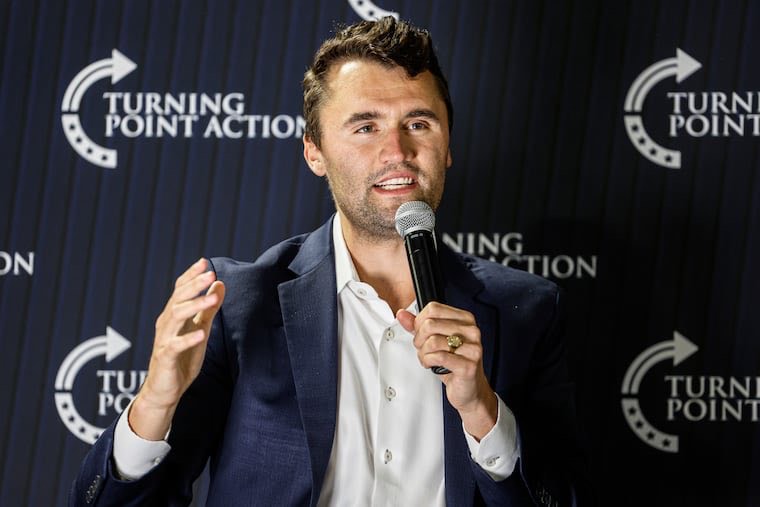
Charlie Kirk did not die a martyr. He died as a natural consequence of the tactics, ideology, and rhetoric he spent years cultivating. The horror of political violence is real, but sympathy is not owed to those who have stoked the same fire they ultimately succumbed to. To frame Kirk as an innocent victim is to erase the years he spent enabling division and harm.
On September 10, 2025, Kirk was speaking at Utah Valley University in Orem during a Turning Point USA stop on his American Comeback Tour. The event was staged under a tent with roughly 3,000 attendees. It followed the familiar “Prove Me Wrong” format in which Kirk invited questions from the public, often sparring with young people on topics like guns, immigration, and gender. Just after noon, as he was responding to a question about mass shootings by transgender people, witnesses say he remarked, “Counting or not counting gang violence?” before a bullet struck him in the neck. The shot, believed to have been fired from a rooftop some 200 yards away, dropped him instantly. He was rushed to Timpanogos Regional Hospital but was pronounced dead shortly after. Video captured the collapse; panic and screams filled the quad. Authorities have called it a targeted killing, though no suspect has been confirmed.

Kirk’s death was dramatic, but it was not disconnected from his own words and politics. He had long argued that the Second Amendment was worth any level of gun deaths, brushing aside casualties as if they were no more tragic than car accidents. He repeatedly insisted that empathy itself was a fabricated moral weakness, damaging to political life.
His rhetoric consistently diminished or mocked the suffering of marginalised groups, whether it was his repeated derision of George Floyd in death. In the weeks and months following George Floyd’s death, Kirk took every opportunity to recast the moment once emblematic of racial injustice into something unrecognisable. Standing before primarily white audiences, he dismissed Floyd as a “scumbag,” arguing that America’s moral panic around his killing was fueled by opportunism rather than remorse. He repeatedly echoed the false claim that a medical examiner believed Floyd’s death should be certified as an overdose, even though the autopsy clearly ruled it a homicide caused by “cardiopulmonary arrest complicating law enforcement subdual, restraint and neck compression.” These were not slips of confusion; these were deliberate distortions meant to undermine one of the nation’s most galvanising calls for justice.
Charlie Kirk was also one of the most vocal defenders of Israel within the American right. He repeatedly framed support for the Israeli government as a litmus test for patriotism, claiming that Israel embodied Western values under siege. Kirk hosted Turning Point USA events in Jerusalem, encouraged evangelical Christians to see Israel’s military strength as a model, and dismissed Palestinian suffering as a distraction created by the left. He often described the U.S.-Israel alliance as “biblically mandated,” reinforcing his broader mission to merge white evangelical nationalism with foreign policy. His unwavering stance meant any criticism of Israel was cast as antisemitism, further hardening divides and silencing conversation about human rights in the occupied territories.
Charlie Kirk has repeatedly used his platform to attack queer people and transgender rights. He has called transgender people a “throbbing middle finger to God,” dead-named public figures like Lia Thomas, and argued that the transgender movement is a lie that corrupts children. He has championed Leviticus 20:13 as “God’s perfect law when it comes to sexual matters” to support his opposition to gay marriage and gender-affirming care. When it comes to abortion, especially in cases of rape, Kirk has been unapologetically harsh: he has shown no public support for exceptions in rape-induced pregnancies, arguing instead that life begins at conception with no room for trauma or victimhood to mitigate it. On race, his rhetoric has been deeply offensive and misleading. He has asserted that Black people commit more crimes than white people, presenting that claim as obvious and supported by “independent analysis,” even when challenged. He has also likened today’s diversity, equity, and inclusion efforts to “more hatred than some elements of the Antebellum South,” a statement that absurdly suggests modern anti-racism initiatives are worse than the legalised cruelty and oppression of slavery.
To extend empathy to a man who rejected empathy at every turn is to ignore the moral clarity of his record. Kirk helped build a movement in which violence was excused as a necessary byproduct of freedom, and in which hierarchy and domination were defended as American virtues. He did not merely tolerate harm; he endorsed it as policy and culture. When such a figure dies by the very violence he dismissed as an acceptable cost, it is not hypocrisy to withhold compassion. It is consistent.
Of course, the act of political violence should be condemned. No society thrives on assassination, and no healthy democracy finds progress in bullets. But condemning the act is not the same as mourning the man. To grieve Charlie Kirk as though he were a fallen leader is to equate his life’s work with the lives his words endangered. His death does not make him a hero or even a martyr. It makes him a casualty of the political environment he helped construct.
If Kirk once said the Second Amendment was worth all the casualties, then he ultimately became one of them. He dismissed empathy as weakness, and so he received none in return. His death is not a tragedy to mourn but a lesson in consequence, a stark reminder of the dangers of fueling a culture of violence while believing oneself immune to its reach.
